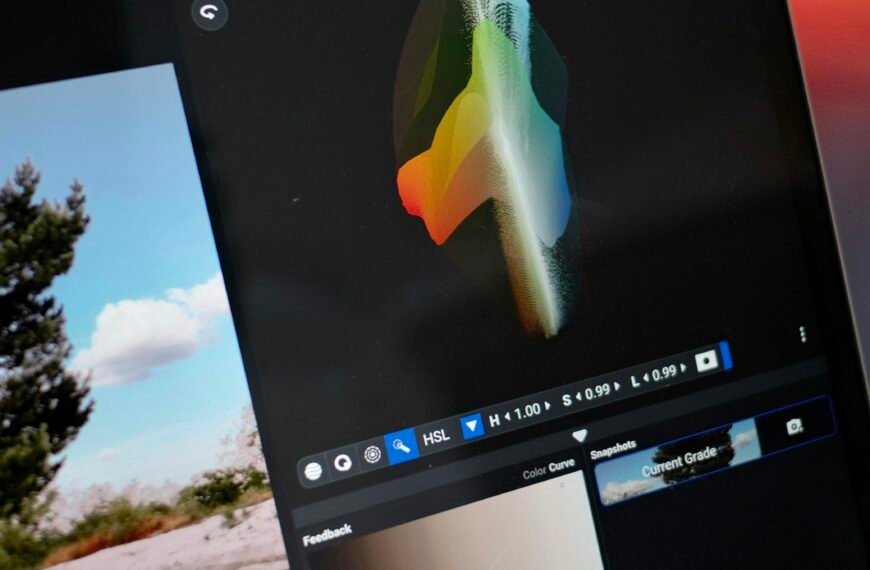Introduction to UGA ELC
The University of Georgia’s E-learning Commons (UGA ELC) serves as a comprehensive digital platform designed to enhance the academic experience for both students and faculty. In an era where digital learning environments are becoming increasingly essential, the ELC plays a pivotal role in facilitating online course delivery, providing instructional resources, and promoting interactive learning methodologies. As a central hub for online education within the university, its significance stretches beyond mere convenience, embodying the institution’s commitment to fostering innovative educational practices.
At its core, UGA ELC is designed to streamline the learning process, ensuring that students have access to course materials, assignments, grades, and other essential resources in a single, user-friendly interface. This platform empowers learners to take greater control of their education, allowing them to engage with content at their own pace and convenience. By offering tools such as discussion boards, quizzes, and multimedia resources, UGA ELC enriches the learning experience, catering to diverse learning styles and preferences.
For faculty members, the E-learning Commons serves as a powerful tool to manage course content effectively. Instructors can easily upload materials, create assignments, and communicate directly with their students, thus fostering a dynamic educational ecosystem. Furthermore, the integration of analytics within the UGA ELC allows educators to track student performance and participation, enabling them to tailor their teaching strategies to better suit individual learner needs. With these capabilities, UGA ELC becomes more than just a learning management system; it is a vital infrastructure that supports the academic mission of the University of Georgia, promoting both teaching excellence and student success.
What is E-learning Commons (ELC)?
The E-learning Commons, commonly referred to as ELC, is the University of Georgia’s centralized learning management system designed to facilitate online learning and course management across various academic programs. Originating from the need to enhance digital education, the ELC serves as a comprehensive platform for both instructors and students, enabling them to engage with course content, resources, and each other in a virtual environment. Specifically, the ELC at UGA operates on the Brightspace platform developed by D2L, which is widely recognized for its user-friendly interface and robust features.
Brightspace enhances the overall learning experience by offering tools that support various pedagogical approaches. It allows for easy access to course materials, assignments, and communication tools, which are essential for fostering an interactive learning atmosphere. By utilizing ELC, faculty members can create engaging content, implement assessments, and provide timely feedback, while students benefit from a structured yet flexible environment conducive to self-paced and collaborative learning.
At its core, the E-learning Commons epitomizes the university’s commitment to integrating technology into education, striving to meet the diverse needs of its student body. With ELC, UGA aims to bridge the gap between traditional classroom learning and online education, providing an enriched experience tailored to accommodate various learning styles and preferences. As a central hub, ELC not only serves students and instructors but also supports administrative aspects of course management, making it an invaluable resource within the educational landscape of the University of Georgia.
Key Features of UGA ELC
The UGA ELC (eLearning Commons) serves as an essential learning management system for the University of Georgia, providing a range of innovative features that enhance the educational experience for both faculty and students. One of the most integral features is the course content management system, which allows instructors to easily upload and organize course materials such as syllabi, lecture notes, and multimedia resources. This centralized repository ensures that students have seamless access to essential academic resources, promoting effective learning and engagement.
Another notable aspect of UGA ELC is its user-friendly interface. Designed with accessibility in mind, the platform offers intuitive navigation that simplifies the process of course management. Students can quickly find the materials they need, while instructors can effortlessly create and modify course components. This streamlined design contributes significantly to a positive user experience, fostering a more productive learning environment.
Additionally, the UGA ELC features comprehensive grading systems that allow educators to assess student performance effectively. Instructors can create assignments, quizzes, and exams within the platform, and the system automatically calculates grades based on set criteria. This capability not only saves time but also ensures transparency in the grading process, as students can monitor their progress throughout the semester.
Effective communication is vital in any educational setting, and UGA ELC excels in this area through its robust communication tools. The platform includes discussion boards, announcements, and direct messaging capabilities, enabling meaningful interactions among students and between students and instructors. These tools facilitate collaboration and help build a sense of community, which is essential for an enriching academic experience.
In conclusion, the features of UGA ELC significantly contribute to its effectiveness as a learning management system, ensuring that both faculty and students have the necessary resources and tools to succeed academically.
Benefits of Using UGA ELC
The UGA ELC, or the eLearning Commons at the University of Georgia, presents a myriad of benefits that enhance both teaching and learning experiences. One of the main advantages is improved accessibility. With the UGA ELC, students can access course materials, lectures, and assignments anytime and anywhere, provided they have an internet connection. This flexibility ensures that learning can occur outside traditional classroom settings, accommodating students’ varied schedules and responsibilities.
Moreover, the UGA ELC supports diverse learning styles, allowing instructors to cater to individual preferences. Different students absorb information differently; some may benefit from video lectures, while others may prefer reading text or engaging in interactive assignments. The platform enables educators to create a plethora of instructional materials, fostering an inclusive environment that meets the needs of all learners. By facilitating various forms of learning, the ELC aids in promoting a more personalized educational experience.
Collaboration is seamlessly integrated into the framework of UGA ELC, further enhancing its utility. With discussion boards, group projects, and peer review features, students can easily collaborate on assignments and engage in meaningful dialogue with their peers. This collaborative aspect enriches the learning process, encouraging the sharing of diverse thoughts and ideas, thus cultivating critical thinking and communication skills that are essential in both academic and professional contexts.
Lastly, the UGA ELC enhances student engagement through interactive tools that encourage active participation. Quizzes, polls, and gamified learning elements captivate students’ attention and motivate them to take an active role in their education. Such engagement not only enhances retention of information but also fosters a sense of community among students and instructors. Collectively, the benefits of utilizing the UGA ELC significantly bolster the overall educational experience for all parties involved.
How UGA ELC Enhances Student Learning
The UGA ELC, or Enhanced Learning Commons, serves as an integral component of the academic experience at the University of Georgia. It is designed to bolster student learning through personalized learning experiences that cater to the diverse needs of its users. One of the foremost ways UGA ELC accomplishes this is through its adaptive learning technologies, which assess individual student performance and tailor educational content accordingly. This personalization not only improves engagement but also enables students to master concepts at their own pace, ensuring a deeper understanding of the material.
Access to a wealth of resources is another critical aspect of the UGA ELC. Students are provided with various online tools and materials that support their coursework, such as instructional videos, readings, and interactive assignments. These resources are carefully curated and accessible around the clock, empowering students to utilize them whenever necessary, thus fitting their study schedules more flexibly. Such accessibility fosters an environment conducive to collaborative learning, where students can work together on projects or discussions, further enhancing their learning experience.
Timely feedback is essential in promoting academic success, and UGA ELC prioritizes this aspect remarkably well. With features that allow instructors to provide immediate insights on assignments and exams, students can quickly identify areas that require improvement. This prompt feedback loop not only helps clarify misunderstandings but also reinforces learning outcomes, paving the way for continuous academic development. As students engage with faculty, they receive guidance on how to utilize learning tools effectively, making the connection between theoretical knowledge and practical applications clearer.
In conclusion, the UGA ELC significantly enhances student learning through personalized experiences, comprehensive access to resources, and the provision of timely feedback, ultimately contributing to improved academic performance and holistic educational development.
Getting Started with UGA ELC
UGA ELC, the online learning management system utilized by the University of Georgia, serves as a critical tool for both faculty and students engaged in online and hybrid courses. For new users, accessing UGA ELC is a straightforward process. To begin, navigate to the UGA ELC login page by entering the URL provided by the university. Here, users will be prompted to enter their UGA MyID and password. These credentials are the same ones used for other university services, so ensure that you have them ready.
Once you have successfully logged in, you will be directed to the UGA ELC dashboard. This central hub is designed for ease of navigation. Familiarizing yourself with the dashboard is essential, as it displays all your enrolled courses, upcoming assignments, and announcements from instructors. The interface is user-friendly, featuring tabs that clearly indicate where to find course materials, assignments, grades, and discussions.
To locate specific course materials, click on the relevant course title from your dashboard. This will lead you to the course homepage, where you can access the syllabus, readings, video lectures, and other essential educational resources. Course content is typically organized into modules or weekly segments, allowing for a structured approach to your learning experience. If you encounter any challenges, the UGA ELC supports various help options, including troubleshooting guides and online forums.
In addition, navigating through the various features available in UGA ELC will enhance your understanding of how to manage your coursework effectively. Investing time to explore tools such as discussion boards, chat features, and assignment submissions will support your educational endeavors at the University of Georgia. By taking these initial steps, you will be well on your way to mastering the UGA ELC platform.
Tips for Maximizing ELC Experience
To fully leverage the capabilities of the UGA ELC (eLearning Commons), students should adopt several best practices that enhance their learning experience. First and foremost, setting up notifications is crucial. Alerts can be configured for announcements, assignment deadlines, and any changes made to course materials. By doing so, students remain informed and engaged, reducing the likelihood of missing vital updates in their courses.
Organizing course materials within the ELC can enhance navigation and streamline access to important resources. Students should take advantage of the folders and organizational tools available within the platform. This enables quicker retrieval of class notes, assignments, and supplementary materials, making the study process more efficient. Furthermore, maintaining a well-structured system fosters a more focused approach to learning.
Utilizing discussion boards is another effective strategy for maximizing the ELC experience. Active participation in these online forums allows students to collaborate with peers, ask questions, and share insights relevant to their coursework. Engaging in discussions not only enhances understanding of course content but also builds a sense of community among students, which is particularly valuable in an online learning environment.
Moreover, students should take full advantage of the various resources available on ELC. This includes accessing tutorials, guides, and the technical support services provided by the university. Familiarizing oneself with these resources can significantly enhance the overall educational experience, ensuring that students are not only competent users of the UGA ELC but are also maximizing its potential for academic success.
Overall, by implementing these strategies, students can effectively engage with ELC UGA, transforming the platform into a powerful ally in their educational journey.
Common Troubleshooting and FAQs
The UGA ELC (eLearning Commons) is an essential platform for students and faculty at the University of Georgia, facilitating the online learning experience. However, users may occasionally encounter challenges while navigating this system. This section aims to address common issues and provide solutions to frequently asked questions, ensuring users can effectively utilize the ELC.
Q1: I cannot access my course materials on ELC UGA. What should I do?
A: If you experience difficulties accessing your course materials, first verify that you are logged into the UGA ELC using your correct credentials. Ensure that your internet connection is stable. If problems persist, clear your browser’s cache and cookies or switch to a different browser. Additionally, check for scheduled maintenance notices via the UGA ELC homepage, which may temporarily restrict access.
Q2: Why do I see a “Course Unavailable” message?
A: The “Course Unavailable” message typically appears if the course instructor has not published the course for student access or if the course is not scheduled for the current semester. Contact your instructor directly for clarification and ask them to make the course available if necessary.
Q3: How can I improve my experience on the UGA ELC?
A: To enhance your experience, utilize the resources provided under the support section on the ELC UGA platform. Familiarize yourself with tutorials available for navigation within the system. Participating in the UGA ELC training sessions can also be beneficial, ensuring you are well-equipped to leverage all functionalities effectively.
Addressing these common concerns will help ensure a smoother learning experience for all users within the ELC system. Should additional issues arise, users are encouraged to reach out to UGA’s eLearning support for further assistance.
Conclusion and Future Developments
The University of Georgia’s ELC (eLearning Commons) has established itself as a pivotal resource within the realm of online education for both students and faculty. As explored throughout this blog post, UGA ELC is designed to facilitate a seamless learning experience by offering a user-friendly interface, diverse tools for course management, and valuable resources that enhance the educational journey. Its adaptability and responsiveness to user needs have made it an integral part of the academic framework at the university.
As we look towards the future, it is essential to acknowledge the ever-evolving nature of learning management systems. UGA ELC is expected to undergo continuous enhancements aimed at improving usability and functionality. Future developments may include the integration of advanced analytics tools, enabling educators to track student performance more effectively and customize learning experiences accordingly. Additionally, incorporating enhanced collaboration tools will foster deeper interaction between students and instructors, promoting a more engaged learning environment.
Moreover, embracing emerging technologies such as artificial intelligence and virtual reality could pave the way for innovative pedagogical approaches within the UGA ELC. These advancements would not only enrich the educational content but also create immersive learning experiences that cater to diverse learning styles. As the platform evolves, maintaining a strong focus on accessibility will ensure that all students, regardless of their background or abilities, can benefit from the offerings within the learning management system.
In conclusion, UGA ELC stands at the forefront of educational technology, consistently adapting to meet the demands of a changing academic landscape. By continuing to innovate and refine its tools and features, UGA ELC is poised to enhance the quality of education at the University of Georgia, effectively preparing students for success in their academic and professional endeavors.

We publish content to inspire and motivate the new generation.














